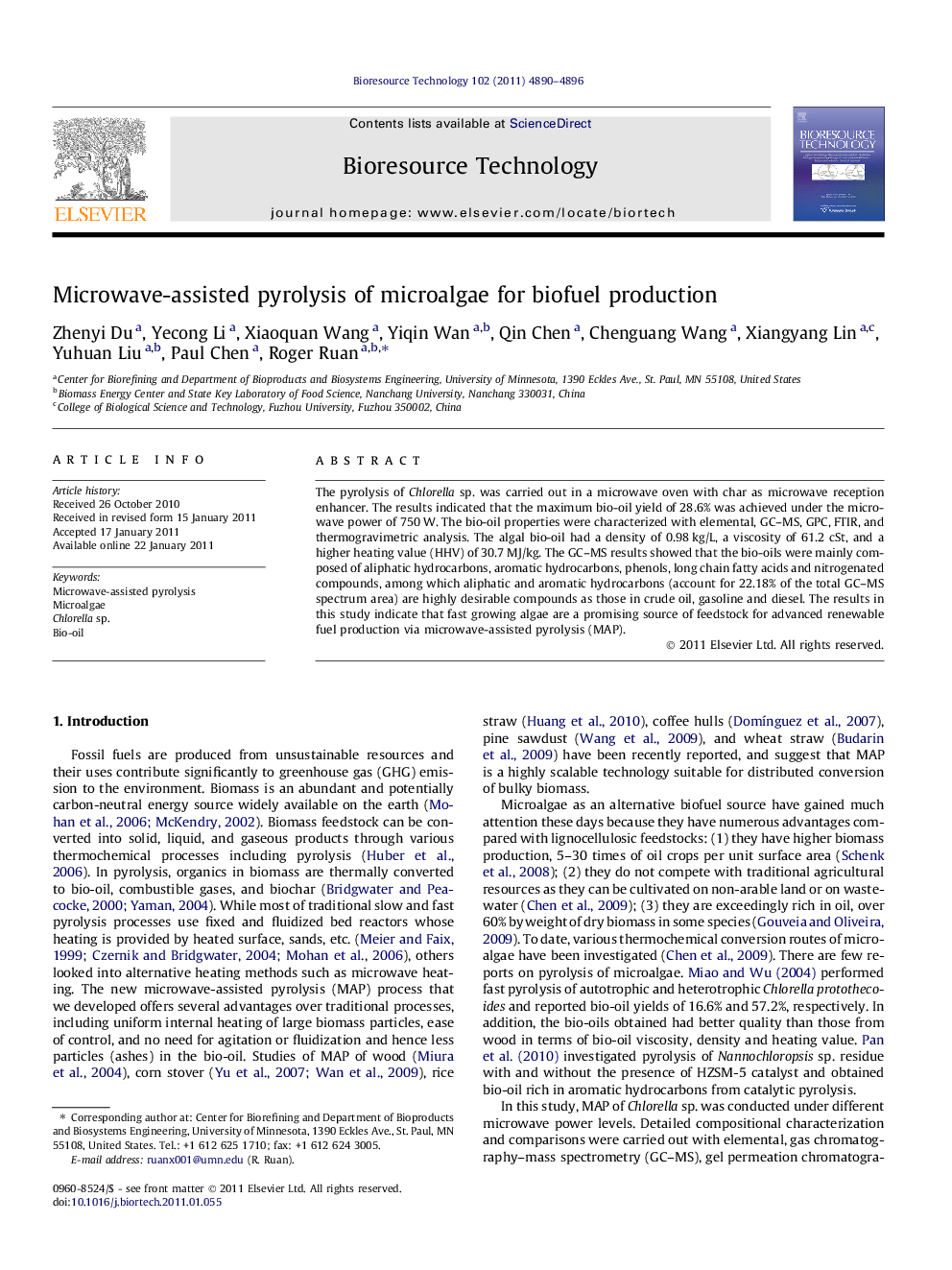| Article ID | Journal | Published Year | Pages | File Type |
|---|---|---|---|---|
| 10395216 | Bioresource Technology | 2011 | 7 Pages |
Abstract
The pyrolysis of Chlorella sp. was carried out in a microwave oven with char as microwave reception enhancer. The results indicated that the maximum bio-oil yield of 28.6% was achieved under the microwave power of 750Â W. The bio-oil properties were characterized with elemental, GC-MS, GPC, FTIR, and thermogravimetric analysis. The algal bio-oil had a density of 0.98Â kg/L, a viscosity of 61.2 cSt, and a higher heating value (HHV) of 30.7Â MJ/kg. The GC-MS results showed that the bio-oils were mainly composed of aliphatic hydrocarbons, aromatic hydrocarbons, phenols, long chain fatty acids and nitrogenated compounds, among which aliphatic and aromatic hydrocarbons (account for 22.18% of the total GC-MS spectrum area) are highly desirable compounds as those in crude oil, gasoline and diesel. The results in this study indicate that fast growing algae are a promising source of feedstock for advanced renewable fuel production via microwave-assisted pyrolysis (MAP).
Related Topics
Physical Sciences and Engineering
Chemical Engineering
Process Chemistry and Technology
Authors
Zhenyi Du, Yecong Li, Xiaoquan Wang, Yiqin Wan, Qin Chen, Chenguang Wang, Xiangyang Lin, Yuhuan Liu, Paul Chen, Roger Ruan,
